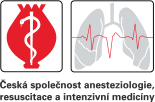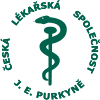Anest. intenziv. Med. 2007;18(3):157-163
Impact of addition of synbiotics (Synbiotic 2000 Forte) to enteral nutrition on the course of MODS, occurrence of sepsis, immune status and gut function in long-term critically ill patientsIntensive Care Medicine - Original Paper
- 1 Anesteziologicko-resuscitační klinika, Fakultní nemocnice u svaté Anny v Brně
- 2 Ústav imunologie a alergologie, Fakultní nemocnice u svaté Anny v Brně
- 3 Institut biostatistiky a analýz, MU v Brně
- 4 Gerontologická a metabolická klinika, Fakultní nemocnice Hradec Králové
Objective:
To investigate if the addition of synbiotics to enteral nutrition improves the prognosis, morbidity, immune status, enteral nutrition tolerance and gut integrity in the critically ill patient.
Design:
Prospective, open, placebo controlled clinical study.
Setting:
Department Anaesthesia and Intensive Care, St. Anna University Hospital, Brno, Czech Republic.
Material and methods:
Patients estimated to stay in the ICU > 7 days were randomised to either post-pyloric Synbiotic Forte (Medipharm, Sweden) or tea. The ICU mortality, ICU length of stay, nosocomial infections, occurrence of sepsis, antibiotic usage and MODS course (SOFA score) were evaluated. The immune status [CD14+HLADr+,TNF-alfa production of the whole blood after LPS stimulation (TNF-alfa) and plasma IL-6 concentrations] was monitored on day 1 (D1), day 5 (D5), day 8 (D8) and then once a week.The amount of enteral nutrition and number of stools were monitored daily. On D1, D5 and D8 a gut permeability test (lactulosa/mannitol) was performed.
Results:
Twenty six patients were enrolled in the study (M/F 18/8; mean age 55 (37; 63) years). APACHE II on admission was 24 (21; 27). Synbiotic was given to 15 and placebo to 11 patients. There was no difference in ICU mortality (p = 0.73) and ICU length of stay - Synbiotic 14 days (6; 28) and placebo 10 days (7; 20); p = 0.80. No difference was found in the number of nosocomial infections - Synbiotic 9/15 and placebo 4/10 patients (p = 0.43). The SOFA score course in the first 8 days also did not differ. In both groups the SOFA score decreased significantly - Synbiotic p = 0.074 and placebo p = 0.026.The severity of sepsis tended to decrease in the Synbiotic group (p = 0.096). In the first 5 days the CRP course and the immune parameters did not differ between the groups (p > 0.10) except for the white cell count which increased in the placebo group (p = 0.02). There was no difference between the groups in the amount of enteral nutrition (p = 0.92) or diarrhoea occurrence (p = 0.78). The gut permeability was pathological in both groups (lactulosa/mannitol > 0.1) and did not change in the first 5 days. A significant decrease of lactulosa/mannitol was observed in the Synbiotic group on D8 (p = 0.02).
Conclusion:
Addition of Synbiotic Forte to the enteral nutrition of the critically ill does not change their prognosis, immune status or enteral nutrition tolerance. Synbiotic Forte can alleviate the course of infections and improve gut integrity.
Keywords: intensive care; outcome; enteral nutrition; synbiotic; immunocompetence; MODS; nosocomial infections
Published: June 1, 2007 Show citation
| ACS | AIP | APA | ASA | Harvard | Chicago | Chicago Notes | IEEE | ISO690 | MLA | NLM | Turabian | Vancouver |
References
- Meakins, J. L., Marschall, J. C. The gastrointestinal tract: The "motor" of multiple organ failure. Arch. Surg., 1986, 121, p. 197-201.
 Go to original source...
Go to original source...  Go to PubMed...
Go to PubMed... - Marshall, J. C. Gastrointestinal flora and its alterations in critically illness. Curr. Opin. Clin. Nutr. Metab. Care, 1999, 2, p. 405-411.
 Go to original source...
Go to original source...  Go to PubMed...
Go to PubMed... - Marshall, J. C., Christou, N. V., Meakins, J. L. The gastrointestinal tract. The "undrained abscess" of multiple organ failure. Ann. Surg., 1993, 218, p. 111-119.
 Go to original source...
Go to original source...  Go to PubMed...
Go to PubMed... - Alverdy, J. C., Laughlin, R. S., Wu, L. Influence of the critically ill state on host-pathogen interactions within the intestine: gut-derived sepsis redefined. Crit. Care Med., 2003, 31, 2, p. 598-607.
 Go to original source...
Go to original source...  Go to PubMed...
Go to PubMed... - Van Saene, H. K., Petros, A. J., Ramsay, G. et al. All great truths are iconoclastic: selective decontamination of the digestive tract moves from heresy to level 1 truth. Intensive Care Med., 2003, 29, 5, p. 677-690.
 Go to original source...
Go to original source...  Go to PubMed...
Go to PubMed... - Kreymann, K. G., Berger, M. M., Deutz, N. E., Hiesmayr, M., Jolliet, P., Kazandjiev, G., Nitenberg, G., van den Berghe, G., Wernerman, J. et al. ESPEN Guidelines on Enteral Nutrition: Intensive care. Clin. Nutr., 2006, 25, 2, p. 210-23.
 Go to original source...
Go to original source...  Go to PubMed...
Go to PubMed... - Heyland, D. K., Dhaliwal, R., Drover, J. W., Gramlich, L., Dodek, P. et al. Canadian clinical practice guidelines for nutrition support in mechanically ventilated, critically ill adult patients. J. Parenter. Enteral. Nutr., 2003, 27 5, p. 355-73.
 Go to original source...
Go to original source...  Go to PubMed...
Go to PubMed... - Wernerman, J. Guidelines for nutritional support in intensive care unit patients: a critical analysis. Curr. Opin. Clin. Nutr. Metab. Care, 2005, 8, 2, p. 171-175.
 Go to original source...
Go to original source...  Go to PubMed...
Go to PubMed... - Simpson, F., Doig, G. S. Parenteral vs. enteral nutrition in the critically ill patient: a meta-analysis of trials using the intention to treat principle. Intensive Care Med., 2005, 31, 1, p. 12-23.
 Go to original source...
Go to original source...  Go to PubMed...
Go to PubMed... - Doig, G. S., Simpson, F. Early enteral nutrition in the critically ill: do we need more evidence or better evidence? Curr. Opin. Crit. Care, 2006, 12, 2, p. 126-130.
 Go to original source...
Go to original source...  Go to PubMed...
Go to PubMed... - Kudsk, K. A. Immunonutrition in surgery and critical care. Ann. Rev. Nutr., 2006, 26, p. 463-479.
 Go to original source...
Go to original source...  Go to PubMed...
Go to PubMed... - Bengmark, S. Gut microbial ecology in critical illness: is there a role for prebiotics, probiotics, and synbiotics? Curr. Opin. Crit. Care, 2002, 8, 2, p. 145-151.
 Go to original source...
Go to original source...  Go to PubMed...
Go to PubMed... - Yang, G., Wu, X. T., Zhou, Y., Wang, Y. L. Application of dietary fiber in clinical enteral nutrition: a meta-analysis of randomized controlled trials. World. J. Gastroenterol., 2005, 11, 25, p. 3935-3938.
 Go to original source...
Go to original source...  Go to PubMed...
Go to PubMed... - Spapen, H., Diltoer, M., Van Malderen, C. et al. Soluble fiber reduces the incidence of diarrhea in septic patients receiving total enteral nutrition: a prospective, double-blind, randomized, and controlled trial. Clin. Nutr., 2001, 20, 4, p. 301-305.
 Go to original source...
Go to original source...  Go to PubMed...
Go to PubMed... - Moeller, A., Ahlers, O., Luedemann, S. et al. Enrichment of early enteral nutrition with lactic acid basterium influnces the innate immune system after major abdominal surgery. Critical Care, 2003, 7, Suppl 2, P12.
 Go to original source...
Go to original source... - Kotzampassi, K., Giamarellos-Bourboulis, E. J., Voudouris, A., Kazamias, P., Eleftheriadis, E. Benefits of a synbiotic formula (Synbiotic 2000Forte) in critically ill trauma patients: early results of a randomized controlled trial. World J. Surg., 2006, 30, 10, p. 1848-1855.
 Go to original source...
Go to original source...  Go to PubMed...
Go to PubMed... - Olah, A., Belagyi, T., Issekutz, A., Gamal, M. E., Bengmark, S. Randomized clinical trial of specific lactobacillus and fibre supplement to early enteral nutrition in patients with acute pancreatitis. Br. J. Surg., 2002, 89, 9, p. 1103-1107.
 Go to original source...
Go to original source...  Go to PubMed...
Go to PubMed... - Rayes, N., Seehofer, D., Theruvath, T., Schiller, R. A., Langrehr, J. M., Jonas, S., Bengmark, S., Neuhaus, P. Supply of pre- and probiotics reduces bacterial infection rates after liver transplantation - a randomized, double-blind trial. Am. J. Transplant., 2005, 5, 1, p. 125-130.
 Go to original source...
Go to original source...  Go to PubMed...
Go to PubMed... - Vincent, J. L., de Mendonca, A., Cantraine, F., et al. Use of the SOFA score to assess the incidence of organ dysfunction/failure in intensive care units: results of a multicenter, prospective study. Working group on "sepsis-related problems" of the European Society of Intensive Care Medicine. Crit. Care Med., 1998, 26, p. 1793-1800.
 Go to original source...
Go to original source...  Go to PubMed...
Go to PubMed... - American College of Chest Physicians/Society of Critical Care Medicine Consensus Conference: definitions for sepsis and organ failure and guidelines for the use of innovative therapies in sepsis. Crit. Care Med., 1992, 20, p. 864-874.
 Go to PubMed...
Go to PubMed... - Bernard, G. R., Vincent, J. L., Laterre, P. F., LaRosa, S. P., Dhainaut, J. F., Lopez-Rodriguez, A., Steingrub, J. S., Garber, G. E., Helterbrand, J. D., Ely, E. W., Fisher, C. J. Jr. Recombinant human protein C Worldwide Evaluation in Severe Sepsis (PROWESS) study group. Efficacy and safety of recombinant human activated protein C for severe sepsis. N. Engl. J. Med., 2001, 344, p. 699-709.
 Go to original source...
Go to original source...  Go to PubMed...
Go to PubMed... - Vacek, V. Probiotika a prebiotika v infektológii. Klin. mikrobiol. inf. Lek., 2002, 8, 3, p. 91-102.
- Sugawara, G., Nagino, M., Nishio, H., Ebata, T., Takagi, K., Asahara, T., Nomoto, K., Nimura, Y. Perioperative synbiotic treatment to prevent postoperative infectious complications in biliary cancer surgery: a randomized controlled trial. Ann. Surg., 2006, 44, 5, p. 706-714.
 Go to original source...
Go to original source...  Go to PubMed...
Go to PubMed... - White, J. S., Hoper, M., Parks, R. W., Clements, W. D., Diamond, T., Bengmark, S. The probiotic bacterium Lactobacillus plantarum species 299 reduces intestinal permeability in experimental biliary obstruction. Lett. Appl. Microbiol., 2006, 42, 1, p. 19-23.
 Go to original source...
Go to original source...  Go to PubMed...
Go to PubMed...





